Speculation on what the easing of lockdown means for universities and particularly research labs. Contention over the Augar Review recommendations. Further concerns for the employment outlook of the graduating cohort alongside conjecture that the lack of work may mean those who hadn’t planned to may consider postgraduate study or even commencing university at undergraduate level. And more parliamentary questions than you could ever dream of!
Parliamentary News
BEIS Chair: Darren Jones MP won the vote and has been appointed as the Business Energy and Industrial Strategy select committee chair. The Labour representative on 13 other select committees will also change due to the incumbents accepting Shadow Cabinet roles. Dawn Butler and Kim Johnson will replace Lucy Powell and Fleur Anderson on the Education Select Committee.
Virtual Parliament Ends: Despite all the investment and flurry of activity finding a virtual solution for Parliament it has been announced that the hybrid arrangements whereby some Parliamentarians remain in the chamber for business and some remote in virtually will end by Friday 22 May. MPs and staff have been told they’ll need to return ‘to normal’ from June. Many MPs feel this is precipitous and inappropriate.
House of Lords HE Debate
Last Wednesday (6 May) the House of Lords debated the impact of the Coronavirus on the HE sector and students. You can read the full debate here. Summary:
Lord Blunkett (Lab) tabled a private notice question on the support package unveiled for universities and students and what steps the government were taking to protect quality and accessibility in the sector.
The Parliamentary Under-Secretary of State, Baroness Berridge, said that all providers must adhere to Office for Student conditions on quality and access. She affirmed that the Government were bringing forward £2.6 billion of forecast tuition fee income to help universities’ cash flow, and providing students with more support, including increasing student hardship funds.
Lord Blunkett (Lab) queried whether the definition of a 5% student uplift referenced in the package was based on forecast numbers, rather than a historic benchmark. He also pressed the minister for timelines of the publication on the work of the research sustainability taskforce, “in respect of the likely catastrophic loss of income from overseas students and the urgent need to underwrite research funding”.
The Minister confirmed that the precise figures to determine the 5% uplift on the cap would be provided at provider level, and the methodology for that will be published shortly.
Baroness Garden of Frognal (LD) said the loss of income from foreign students would be compounded by the loss of research income from Horizon 2020 and other EU participation programmes. She queried what steps were being taken to encourage overseas students to come to the UK.
The Minister confirmed that the Department for Education was working with the Department for International Trade to amend the international education strategy. “The clear message is that the UK is open for business and for international students to come at the start of the academic year”, she said.
Opposition Spokesperson for Education and Business, Energy and Industrial Strategy, Lord Bassam of Brighton, commented that “the Government are allowing universities to charge students the full £9,250 annual tuition fee while our campuses remain closed—as long as there are highest standards of online teaching”.
He posited that many courses were simply unfit for online learning and contended that the market-driven higher education system had forced students to see themselves as consumers, “and they are not getting what they have paid for”.
The Minister responded that the Office for Students had been very clear on quality of provision that should be maintained during this period.
Baroness Bennett of Manor Castle (GP) queried how future policies could help universities move towards a more co-operative model and eliminate the waste emanating from competition. “The kind of waste that could be eliminated is, as the Augar report highlighted, the £500 per student that is spent on marketing”, she added.
The Minister responded that the Office for Students was a modern regulator, encouraging greater innovation and putting student choice at the centre of the system.
Tuition Fees
In last week’s policy update we highlighted the petition to Government to refund student’s tuition fees. On Thursday the Petitions Committee examined the petition and took oral evidence. You can read a summary provided by Dods here.
Research Professional report on a conversation with UUK on the dangers if universities are required to repay tuition fees – paying back fees could see some universities pushed to the edge.
Universities Minister, Michelle Donelan, answered another parliamentary question to confirm that tuition fees remain payable as long as the quality and volume of delivery is appropriate.
Q – Stella Creasy: To ask the Secretary of State for Education, whether universities that have closed as a result of the covid-19 outbreak will require their students to pay their fees in full.
A – Michelle Donelan:
- Fee loans are being paid directly to universities as planned at the start of the third term.
- We are working with universities to make sure all reasonable efforts are being made to enable students to continue their studies to the best of their abilities. There are some fantastic and innovative examples of high-quality online learning being delivered by institutions across the UK, and the sector is already working hard to prepare learning materials for the summer and autumn terms.
- Students ordinarily should not expect any fee refund if they are receiving adequate online learning and support. However, the government has made it clear that if universities are unable to deliver adequate online teaching then it would be unacceptable for students to be charged for any additional terms of study, which would effectively mean that they were being charged twice.
- Whether or not an individual student is entitled to a refund of their fees will depend on specific contractual arrangements between the student and their university.
- In the first instance, students should speak to their university. We expect student complaints and appeals processes to be operated flexibly, accessibly and sympathetically by institutions to resolve any concerns. Students who are not satisfied with their institution’s final response can ask the Office of the Independent Adjudicator for Higher Education to consider their complaint if their institution is based in England or Wales.
A Lords response on (not) adjusting tuition fees for online provision.
Student Accommodation
There is a Bill before the Scottish Parliament that will allow students who cannot take up their place in university accommodation because of C-19 to end their lease. Research Professional report that
- those already with halls of residence contracts will be able to cancel their agreements with seven days’ notice, and those who enter into such contracts will also be able to cancel with a month’s notice. This, if passed, will stop students from being liable for rental costs for next year when, in all probability, at least part of their teaching will be taking place virtually.
The BBC has covered the news of the Bill.
Parliamentary questions:
- Private student renter support for those the university encouraged to go home.
- This on Government – University discussions on rent.
Government’s Support Package for HE
The Shadow Universities Minister, Emma Hardy, was unimpressed with the Government’s support package for HE institutions. Research Professional (RP) ran the exclusive with her writing an open letter to higher education.
- RP report that the Shadow Minister stated: I was very disappointed that the government rejected the collective proposals put forward by Universities UK and chose instead just to bring forward the payment of student fees alone. This does nothing to address the underlying loss of income in the long term and consequently universities are being forced to set budgets in the dark without a safety net.
- RP continue: In her letter, Hardy addresses university budgets, widening participation, casual contracts, student rent, open learning, mental health, anchor institutions, skills and training. She rounds on the government’s apparent neglect for students, saying that students are seen as “somehow a different category of person whose welfare is the sole province of universities and the Office for Students”. She calls Monday’s financial rescue package an “abdication of the government’s responsibility”.
On easing Lockdown Emma Hardy was similarly unimpressed stating the PM’s speech contained a total lack of clarity. Research Professional has also considered what easing lockdown could mean for Universities.
The Office for Budget Responsibility has published a coronavirus analysis modelling the impact of the virus and the measures put in place to tackle and ameliorate for it. Research Professional reported from the report on Sunday that while universities may not suffer in terms of income lost until September, they would be the sector hardest hit by the coronavirus crisis.
Wonkhe explain why the schemes the Government want Universities to access (furlough and business continuity schemes) don’t really work for the HE sector.
There is lots of talk about the Policy Exchange report, A training opportunity in the crisis, which some sector reporters suggest is another way for the Government to close down the degree courses they don’t feel add value to the UK economy – “mickey mouse courses”.
This Wonkhe blog looks at the options available for the sector and highlights these excerpts from the Policy Exchange report:
- …a Policy Exchange report that’s officially on “skills”, but is really onreorganising tertiary. First some clickbait keywords – current bail out conditions provide Government, he says, with short term leverage to “weed out” weaker courses and push back against “grade inflation”, “unconditional offers” and other “pathologies of modern”, market-driven HE.
Dods summarise the key points of the Policy Exchange paper:
- [The paper] sets out how the coronavirus crisis could be a watershed moment for education and training in the UK. Among other recommendations, it urges the Government to undo the policy error of abolishing the polytechnics in 1992… it argues that the current crisis offers an opportunity to cut through many of the normal blockages and vested interests, not least since we may – in the wake of coronavirus – be moving into a period of high unemployment, which will require a radical rethinking of current policy.
These are the executive summary points taken from within the paper itself:
- The coronavirus crisis underlines the need for an education and training system that is better aligned with the economic and social needs of the UK. We can no longer afford the luxury of a wasteful mismatch produced by low value degrees and a disorganised approach to vocational training.
- The Government must overcome the resistance of the higher education sector, which has quietly become a powerful cultural and economic vested interest.
- This paper recommends that a new “opportunity grant”, to train or retrain, of at least £3,000 should be on offer for every individual, with added loans to cover more expensive courses and maintenance costs for those who want to take courses full time (repaid in the same way as student loans). The grant money would not go to the individual but would be drawn down by the training provider or FE college or, in a few cases, university.
- It recommends suspending the apprenticeship levy for new entrants and replace it with a radically simplified model focused on school leavers (only about 9 per cent of whom currently enter an apprenticeship) and young people up to the age of 24, with Government and employers splitting the full cost 50:50.
- Lastly, it recommends the creation of a sub-set of “applied universities,” essentially undoing the policy error of abolishing the polytechnics in 1992. With the exception of the “higher” vocational courses in medicine, engineering, and perhaps law, most vocational degrees should be clustered in the applied universities
Parliamentary questions:
- Admissions – support for HE providers who recruit only at a significantly decreased level for 2020/21 (answer – just the package already announced).
- What plans the Government have to provide financial assistance to universities during C-19.
New guidance as lockdown “eases”
As educational institutions make decisions on where to go with Sunday’s announcements on the easing of lockdown from Wed 13 there is clear guidance on Gov.uk on a couple of points at least.
Q – Can students return to their family home if they’ve been in halls all this time?
- A – In general, leaving your home – the place you live – to stay at another home is not allowed. If a student is moving permanently to live back at their family home, this is permitted.
Q – Who is allowed to go to work?
- A – In the first instance, employers should make every effort to support working from home, including by providing suitable IT and equipment as they have been already. This will apply to many different types of businesses, particularly those who typically would have worked in offices or online.
- Where work can only be done in the workplace, we have set out tailored guidelines for employers to help protect their workforce and customers from coronavirus while still continuing to trade or getting their business back up and running. We will be publishing even more detailed COVID-19 secure guidelines in the coming days, which has been developed in consultation with businesses and trades unions.
These ‘back to work’ guidelines apply to selected groups, including those working in labs and research facilities.
There are specific guidelines for those who are vulnerable, shielding, or showing symptoms.
And on attending university – there is no answer (yet) but there is a question.
Q – Can children go back to early years settings, schools or university?
- A – We initially urge those who are currently eligible to use school provision (children of critical workers and vulnerable children) to attend. As soon as it is safe to do so we will bring more year groups back to school in a phased way when it is safe to have larger numbers of children within schools, but not before. Keeping children and staff safe is our utmost priority.
- Schools should prepare to begin opening for more children from 1 June. The government expects children to be able to return to early years settings, and for Reception, Year 1 and Year 6 to be back in school in smaller class sizes from this point.
- Secondary schools and further education colleges should also prepare to begin some face to face contact with Year 10 and 12 pupils who have key exams next year, in support of their continued remote, home learning.
- The government’s ambition is for all primary school children to return to school before the summer for a month if feasible.
There might be some clues here for what the answer will be when there is one:
Q – How will you make sure it is safe?
- A – Schools can now operate if they are organised in a way that is compatible with minimising the spread of the virus. The next phase of measures will require the development of new safety standards to set out how physical spaces, including schools, can be adapted to operate safely.
- We will publish guidance advising schools on reopening to ensure schools can adequately prepare for the next phase. One of the main protective measures we can take to reduce transmission is to have small consistent group and class sizes.
Labs and research facilities – there is a specific set of broad guideline for cautious reopening
On lab based researchers returning to work research Professional write:
- Perhaps of most immediate interest to higher education people—particularly those engaged in lab or field-based research—was the announcement that as of today, those who cannot carry out their work from home are “actively encouraged” to go back to work.
- While Johnson used the example of the construction industry, it is hard to argue that researchers whose lab work is housed on campus or in research institutes can meaningfully carry out their work from home. Those who have such work to go back to (though who knows how many experiments have been lost, either due to a lack of attention or by lab capacity being usurped by urgent coronavirus work) are now, it would appear, permitted to do so.
- That is, provided that they can get there—without using public transport, wherever possible. Also, their employers (which is where university professional and support services come in) must ensure that their workplaces have been made “Covid secure”.
Easing back to Education
Another week brings a further set of opinions on what a graduate emergence from lockdown might be like within HE. These two were written before Sunday’s announcements:
- Wonkhe consider the middle ground with some aspects back on campus but respecting social distancing.
- Research Professional (RP) report that Italian research labs reopen and describe their working conditions.
And these published after the announcement:
- RP look for clues within the published schools reopening guidance and speculate about which research labs it is most important to open first. Alongside the tricky issue of the volume of support staff that would be needed back on site to support those working in labs (cleaners, post services, estates functions, senior supervision).
- RP cover Portugal (instructed to blend face to face with distance from September, and relaxing the entrance rules) and Germany (partially open for teaching and research where face to face necessary – but digital learning prioritised, some states prefer digital only, face to face contact remains controversial).
- The Centre for Education and Youth has produced a report stating that summer schools likely won’t deliver the catch up for school pupils that is needed (although different approaches may result in success). They also recommend balancing academic ideals and emotional wellbeing. Teachers are most concerned about their disadvantaged pupils. Furthermore, special consideration should be given to pupils transitioning between phases or schools.
- RP suggest that Universities or parts of universities could be moving in and out of quarantine on a regular basis. And another article details the institutions who do not intent to (immediately, at least) reopen their labs.
- A Wonkhe student union blog looking at what we’re allowed to do, able to do, and willing to do when the autumn term commences – and how individual differences may create further inequities.
General Public Opinion on easing lockdown
A snap YouGov poll conducted after Sunday’s easing of lockdown announcements showed divided sentiments within the nation.
- 44% of surveyed support the easing, 43% are opposed, 13% are ‘unsure’.
- Conservative voters support the intended measures more than Lib Dem or Labour voters.
- Support for the easing rises with age, and men are a little more likely to support the work and exercise relaxation rules than women.
- However, those opposing the easing measures are not opposed to ending lockdown, instead 91% of the opposed feel the relaxation of measures go too far.
- 70% of the survey population weren’t keen on the new Government catchphrase either (stay alert, control the virus, save lives), finding it unclear on what they are supposed to do. Again there is a party divide influencing whether the responders like the slogan.
Another YouGov poll finds that 82% of the public think they could easily cope with the current state of affairs until June.
- Those that would find it hard is up 2% from 11% to 13%.
- 63% said they’d be OK until July. But by August predicted coping drops to 44%, with 50% of respondents saying they’d have a hard time continuing as present until August.
- It drops again to 35% who could cope into September. And 22-25% believe they’d be OK until January 2021.
YouGov say: The fact that figures level off at this point [November] could simply reflect the limits of how far into the future Britons are able to imagine their emotional state, rather than representing the bedrock figure for how many people could effectively cope indefinitely.
Augar Review
The surprise news of the weekend was Phillip Augar stating that C-19 has changed the sector and that he no longer stands by some of the recommendations the Post-16 review of tertiary education report made.
You’ll recall that the Augar report has been published for nearly a year but due to Government procrastination, in part caused by the change in Conservative leadership, there has been no official response to the recommendations.
Now Augar writes in a personal capacity for the Financial Times stating now might not be the time to reduce the social science/humanities fee level as the Augar review originally recommended. However, it is not quite the ‘U-Turn’ that the HE media are reporting. Much of what Augar has to say continues along the report’s party line, i.e. not all courses financially benefit the economy as much as others. Here are the key excerpts from the Financial Times article – the time is ripe to reform UK university finance.
- Higher and further education will play a key role in shaping this [the way the world of work will change due to C-19]. England, where the sectors are disconnected and unevenly funded, faces particular challenges. A panel on post-18 education, which I chaired, reported a year ago and the government says it will respond this year. Reform would be timely.
- However, there are signs that the dividend from higher education as currently delivered in England has played out. One in three graduates are not in graduate-level employment; one in five would have been better off financially had they not gone to university; and outcomes for the disadvantaged vary too widely. Recruiting large numbers on to poor quality, irrelevant courses is not a triumph of social mobility. Better directed recruitment at scale could be.
- This is a public as well as a private issue. University education in England is funded by state-backed student loans, written off after 30 years. Nearly half of all students receive a government subsidy in this way. The write-off varies between subjects. The state loses money on around a third of all subjects studied. It writes off more on social studies subjects than on maths, computer science or engineering; more on communications and media studies than on agriculture and veterinary science; and more on creative arts than on any other subject. Without denigrating any subject as being unworthy of study, there is a clear misalignment between the subsidy and the economy’s needs.
- The funding model is the root of the problem. It allows universities to charge £9,250 for all courses, cross-subsidising research and expensive subjects from fee income earned on high-margin courses and overseas students. This has led to an oversupply in some disciplines, under-investment in science degrees and over-reliance on overseas student fees, which necessitated this week’s government support package.
- The panel I chaired recommended cutting tuition fees to the average cost of a humanities degree — £7,500, according to Universities UK — and increasing the existing top-up for strategically important courses. Covid-19-related disruption may now mean that such a fee cut would be too destabilising. But the problem has not gone away. An alternative would be to freeze fees for a further five years and ramp up the teaching grant for strategic subjects. Other options include number caps on some courses or a payment back to government by universities for reinvestment in priority subjects.
- One final point. The importance of the country’s research base has been underlined during this crisis. In future, university research needs to be funded openly, generously and strategically, not partly via the back door.
So he hasn’t really changed his mind as others are reporting. He’s just saying make the proposed cuts by another method so as not to add to the immediate destabilisation of the sector. And the alternatives he proposed might not be that popular either, although they will resonate with those who like the Policy Exchange report referred to above.
Research Professional reached out to Nick Hillman, director of HEPI, to ask his opinion on Augar’s pronouncement. Here’s his response: Augar’s tuition fee U-turn made me splutter into my Pimm’s.
- One of the great unwritten rules of politics is that if you ask a member of the great and the good to review a policy area for you, you can reliably expect them to defend their conclusions for years to come… Augar’s volte-face is nothing to do with the government ruling out his idea. We are still waiting for them to tell us what they think of a report that was originally announced at the Conservative Party conference back in 2017… Indeed, the U-turn is oddly timed because, in some respects, the chances of the Augar report’s main proposal being implemented have improved in recent months. Alison Wolf, an influential member of the Augar panel, has started advising Number 10 and numerous people have called for fee reductions to help students hit by Covid-19. Former UCAS chief executive Mary Curnock Cook, for example, has called for a 20 per cent fee discount.
Hillman takes exception with Augar blaming Blair for the 50% young people entering HE aspiration. Hillman states:
- This historical inaccuracy matters because it allows Augar to continue portraying the recent expansion of higher education as an error. He argues that “the dividend from higher education as currently delivered in England has played out”. That is a very odd argument to make on the cusp of a recession. Earlier downturns have proven that being better educated is an insurance policy against unemployment.
And on Augar’s FE points (see article) Hillman also disagrees:
- But his third argument is highly questionable. He says there is a need to boost further education to provide “a viable alternative to degrees”. This is half true and half crazy. Do we need a better offer for people who do not undertake higher education? Indubitably. But are there too many people doing degrees? No.
- The problem the UK faces, as shown clearly in comparative OECD data, is that we have too many low-skilled people, not too many highly skilled people. In eduspeak, too many people are educated only to levels 2 and 3, and not enough at levels 4 and 5 and levels 6 and 7.
Nursing students
The Royal College of Midwives, the Royal College of Nursing (RCN), UNISON and the NUS have written to Matt Hancock asking him to “acknowledge students’ selfless service, not only with words, but in a tangible and quantifiable way”. By:
- reimbursing tuition fees or forgiving current debt for all current nursing, midwifery, and allied healthcare students;
- abolishing student-funded tuition fees for all nursing, midwifery, and allied healthcare students starting in 2020/21 and beyond, in recognition that they will be supporting vital public services; and
- introducing universal, living maintenance grants that reflect actual student need.
The RCN have been a very effective lobby force over recent years as they have ceaselessly campaigned again the introduction of tuition fees and the removal of the NHS bursary. Have you ever noticed how we talk about nursing fees far more than the other allied health professions? This is down to the organisation’s effectiveness in keeping their demands in the spotlight, the relationships they’ve developed with policy makers and applying pressure on the Government. While these demands are not new, especially during the increased calls for it during C-19, nurses have even more public attention, awareness and positive public feeling behind their campaign for change now. But will the Government cave and reform the system at a time when the pressure on public spending is almost unprecedented? It could go either way, we wouldn’t like to predict!
There was also a parliamentary question on the topic:
Q – Stuart Anderson: To ask the Secretary of State for Education, whether he has made an assessment of the potential merits of replacing tuition fees with a teaching grant for courses taken by (a) health professionals and (b) other key workers.
A – Michelle Donelan:
- The government subsidises the costs of higher education through the teaching grant and write-off of unpaid tuition fee loans, which ensures a sustainable system. Nurses and other healthcare students are currently eligible for a range of financial grant support in addition to tuition fee and living cost loans. There is also a range of additional support and bursaries for students in other professions where they are considered to be critical workers.
This week we had International Nurses Day and Nursing Times have published a call from NHS England’s Chief Executive, Sir Simon Stevens, for universities to increase the number of nursing students they take each year. The article claims that 8,000 more clinical placements are available for trainees. Outstripping supply of students by an additional 4,000. NHS England has called for a Spring start as well as the traditional autumn intake. The Council of Deans have confirmed several universities already do this and it primarily attracts mature students. Dr Kolyva from the Council of Deans stated:
- Multiple student cohorts do have implications for staffing and timetabling…Though these are not necessarily insurmountable if there is enough student interest, it would be useful to work with Government on supportive measures, including more flexible student finance arrangements and policies to boost the academic workforce. [There are also] …challenges to be addressed around student placements and the provision of support in practice so long as the pandemic continues”.
The Royal College of Nursing Chief Executive also contributed to the article commenting that to truly grow the nursing workforce more needed to be done including the scrapping of tuition fees. The Independent also cover the story of additional clinical placements without students to fill them. Wonkhe have an older (2019) blog on difficulties associated in the expansion of nursing.
Graduate Outlook
This week has seen a myriad of sources all covering the graduate outlook for those students finishing their degree this year. Prospects have published Graduating into a pandemic: the impact on university finalists. The article leads with: Nearly two-thirds of university finalists feel negative about their career prospects and many have lost job offers or placements as a result of the COVID-19 crisis – but others say they now have more time to plan their future. The article goes on to describe the results of their graduate recruitment survey:
- 1% lost their work placement/internship
- 2% lost their job
- 2% had their job offer deferred or cancelled.
Some other stats:
- 47% are considering postgraduate study
- 82% feel disconnected from employers
See the article for more content including what students expect from Careers services and would like to know from employers.
The Telegraph covers the survey in Almost a third of graduate jobs have been cancelled or deferred due to coronavirus and on the national situation in Graduate job adverts fall by three quarters ahead of ‘extremely challenging’ summer.
Financial Times write that The class of 2020 need help to start their careers.
i News reports that the job crisis may persuade more young people to commence a degree in September. They quote Nick Hillman of HEPI as saying: If you were leaving school this summer you’re not going to get a job frankly… If you were thinking you might go and get a job, you might as well stay on and go to higher education. Although there isn’t comment on how this potential phenomenon might impact of non-continuation rates. i News also reports on the Prospects survey we mention above:
- Separately, a survey by the careers service, Prospects, found that nearly half (47 per cent) of final year students are now contemplating postgraduate study, as graduate job opportunities have dried up in the wake of the pandemic. The survey found that 28 per cent of final year students have had their graduate job offers deferred or rescinded. There could be a marked rise in applications for courses which lead towards occupations which are perceived to be “recession-proof”, such as teaching.
The same article states UCAS have noted calls from students who planned to defer but now wish to attend in September – perhaps because their internship or travelling plans have to be rethought. Finally iNews state that applications by mature students and graduates wishing to take postgraduate courses are also set to rise, as older adults seek a safe haven amidst the economic turmoil caused by Covid-19.
The British Academy are upbeat (their report has a general outlook – it isn’t commenting on the effects of the Coronavirus) and they have published a report examining the employment prospects of graduates from different subject groups. It finds that graduates in the arts, humanities and social sciences (AHSS) are just as employable as their counterparts in STEM subjects, fuel some of the fastest-growing sectors in the UK and enjoy rewarding careers in a wide range of sectors. They are also more likely to change sector and role voluntarily, without wage penalty, suggesting greater flexibility and choice than STEM graduates. Furthermore graduates of arts, humanities and social sciences are just as resilient to economic upheaval as other graduates and are just as likely to remain employed as STEM graduates during downturns.
Research Professional also write that further study could ease the pressure from graduating into a collapsing job market in More time at university could protect graduates from recession.
And Wonkhe have scoured the Student Hut’s Covid-19 tracker finding that students
- are hoping for discounts on postgraduate fees as compensation for time lost due to the pandemic – with more than half prepared to accept a “significant” discount on future study or continuing professional development to make up for interruptions to their learning this year.
Labour Market Statistics
The DfE published graduate labour market statistics for 2019 graduate, postgraduate and non-graduate employment rates and earnings (for England). These set out a breakdown of employment rates, unemployment rates and gross median annual earnings by different age groups and by undergraduate and postgraduate degrees. Key Points:
- Non-graduates were most likely to be employed in medium/low-skilled roles (48.1%). The proportions for graduates and postgraduates were 21.9% and 9.8% respectively; 0.4 and 1.2 percentage points lower than in 2018.
- In 2019, the median salary of working-age graduates was £34,000. This represents no change from 2018. Non-graduate salaries rose to £25,000, narrowing the gap between the two groups to £9,000.
- Post-graduates saw the largest increase in median salary from 2018 (+£2,000). Increasing the gap between graduates and post-graduates to £8,000, the largest it has been since 2007.
- The employment rate for working-age graduates in 2019 was 87.5%, slightly lower than the rate in 2018 (87.7%).
- 6% of working-age graduates were in high-skilled employment in 2019, compared with 78.9% of postgraduates and 23.9% of non-graduates. Although this represents a slight increase of 0.2 percentage points since 2018 for graduates, the rise was larger for both postgraduates (2.4 percentage points) and non-graduates (1.0 percentage point).
- Young non-graduates performed the worst across (employment rate, inactivity and unemployment). The inactivity rate for young non-graduates (20.2%), was more than double the rates for young graduates (7.9%) and postgraduates (8.0%). However, this cohort is likely to include a significant proportion of economically-inactive students.
- Across all qualification categories those aged 21-30 were more active in the labour market than the general working-age population, however, with the exception of graduates, the unemployment rates of the young cohort were also higher. This could indicate that young postgraduates and non-graduates find it relatively more difficult to find employment than their working-age counterparts.
- Across all qualification types, individuals in the young population had lower high-skilled employment rates than their working-age counterparts. This may provide some evidence for graduates and non-graduates ‘upskilling’ as they acquire increasing amounts of labour market experience. It could also, however, reflect the limited number of high-skilled employment opportunities available to younger individuals and the potential difficulties they face matching into relevant jobs early in their careers.
Skills Challenges
The Federation for Industry Sector Skills and Standards has published a report on which industries face the biggest skills challenges. The report takes a longer term view, beyond immediate challenges posed by C-19, and compiles data on long term and transformative trends shaping the future of skills, such as automation and the ageing workforce. Dods summarise the key challenges:
- Automation – The fourth industrial revolution could alleviate skills challenges, but some industries are more amenable than others. While 58% of jobs in hospitality are at risk of automation, this falls to just 34% of jobs in Information and Communication.
- Ageing workforce – By extending working lives, this is as much an opportunity as a challenge. Agriculture, forestry and fishing is the sector with the oldest workforce. Over 50% are over the age of 50 compared to just 17% in hospitality.
- Brexit – Immigration policy will be a more significant challenge for some sectors than others. While only 3% of the Public admin and defence workforce are EU nationals, this rises to 15% for the industry known as households as employers (e.g. gardeners, babysitters, cleaners etc.).
- Staff turnover – Skills policy often concentrates on the talent coming into an industry. But stemming the flow of talent leaving the industry can build up the stock of skills. Sectors like Education have a low proportion of employees leaving the industry each year (14%) while for Arts, entertainment and recreation it stands at 35%.
Research
There has been a lot of reflection on research this week,
Research Professional have a blog which argues for the practice of using international tuition fees to cross subsidise research to be reconsidered – which an emphasis on Government support to pay more. It is set both within the context of expected reduction in international student numbers (so less money available to fund the research) and that post-crisis research should be funded more comprehensively and fairly.
Wonkhe have a blog A bold plan for research will guide choices in a post-Covid economy.
Another Research Professional article reiterates last week’s messages that the Government support package only represents a 5% drop in the ocean against what UUK calculated was needed.
Taskforce: The University Research Sustainability Taskforce (part of the Government’s non-bailout support package) held its first meeting on Tuesday co-chaired by both Ministers (Michelle Donelan – universities and Amanda Solloway – science). Details from the meeting haven’t yet been released.
The Power of Place: CaSE (Campaign for Science and Engineering) have an 11 page report with case studies demonstrating the importance of investing in regional R&D.
Access, Participation and Success
Wonkhe report that Student Minds have called on the government to offer further mental health support for students during the Covid-19 pandemic.
HEPI have a blog by UCAS chief executive Clare Marchant Above and beyond predictions – No exams presents an opportunity for innovation in contextual admissions.
Parliamentary questions:
- Laptops for vulnerable and disadvantaged young HE students.
- Ensuring universities provide e-learning.
- Definition of disadvantage among year 10 pupils to qualify for the C-19 laptop ameliorative scheme.
- Whether online testing for dyslexia and other neurodiverse conditions is acceptable.
- Whether online testing can be used as confirmation of disability for the Disabled Students’ Allowance (a holding response was given).
Unite blog for HEPI on their concerns for care experienced and estranged students who are struggling without a familial support network or their part time employment during the coronavirus crisis. They call on Government to put: in place an emergency grant for care-experienced and estranged students, to make sure that they are not forced to drop out of their studies in order to support themselves.
Changes in Further Education
Wonkhe report that the government is planning on bringing further education colleges back into public ownership in (another) major shakeup of that sector. Gavin Williamson has suggested that a white paper about this is imminent – we should watch this closely for clues as to the government’s plans for the whole tertiary landscape.
FE Week cover the story, excerpts:
- Work has begun on a White Paper to be followed by legislation, after recent attempts to financially stabilise the sector with an area review programme and restructuring funds totalling around half a billion pounds were deemed to have failed.
- The number of colleges in formal intervention over their finances, currently more than 30, continues to rise and government bailouts have not stopped in recent months despite attempts to end them last March with the introduction of a new education administration regime.
- …it is understood that civil servants have concluded the first and so far only colleges to be put into administration… have been both too slow and too costly.
FE week states the Government have been working on a FE Bill since January and that SoS Education, Gavin Williamson, has stated the reforms will be ‘revolutionary’. Government is concerned that where a college is failing both financially and poor quality provision the governing body remains independent and the Government has limited powers of intervention. FE week says:
- It is understood Williamson and the team around him are becoming increasingly frustrated by this inability to step in when they deem there to have been leadership failures.
On the planned changes the DfE have stated:
- The education secretary has already made clear that we are working on a White Paper aimed at delivering ambitious reform in our vital FE sector. The FE sector is playing a pivotal role in making sure more people can access the high-quality education and training they need to progress and will support our economic recovery following the Covid-19 outbreak. Our reforms will build on and strengthen the excellent work already happening across the country and will ensure the FE sector is at the heart of every community.
It seems the Government intend to seize all opportunities to change of course of tertiary education through coronavirus leverage. One wonders whether Augar is needed at all.
On the expected FE changes Research Professional state: The implications could be far reaching for universities as part of the government’s skills and levelling-up ambitions.
Parliamentary Questions
An absolute flood of parliamentary questions this week! We’ve put them where relevant in the main part of this update and the rest are here:
- What steps the [Government] are taking to ensure that university courses which supply (1) health workers, (2) teachers, and (3) other core public sector workers, are (a) protected, and (b) expanded, following the COVID-19 pandemic.
- This on English language testing for international students (but particularly pertaining to Africa).
- Encouraging more EU and International students to study in the UK post C-19.
- Distance learning courses in HE institutions.
- Position on visa extensions for international students unable to complete degree due to C-19.
- And still no news on the TEF response from the Government.
- Use of this year’s NSS results.
- C-19 effect on student’s employment (whilst studying)
- The role of University Technical Colleges.
Inquiries and Consultations
Click here to view the updated inquiries and consultation tracker. Email us on policy@bournemouth.ac.uk if you’d like to contribute to any of the current consultations.
Other news
OfS Board papers: Research Professional highlighted that OfS are censoring an unexpectedly large amount of their Board papers and other materials. Read the article for more detail. On this the Shadow Universities Minister stated during this incredibly difficult time, the need for honesty and transparency is even more important and I would encourage the OfS to reflect on the need to redact such huge quantities of information. Wonkhe also pick out 20 points of interest in the Board papers.
NSS results: NSS results are to be published on the OfS website on 1 July (09:30am). With provider-level and subject-level question responses, open text comments, and all providers’ NSS results published on the results portal at the same time. OfS stated
- UK funders and regulators will look at the data when received to assess any impact the coronavirus outbreak has had on the results and make professional judgements about its statistical reliability.
Subscribe!
To subscribe to the weekly policy update simply email policy@bournemouth.ac.uk.
JANE FORSTER | SARAH CARTER
Policy Advisor Policy & Public Affairs Officer
Follow: @PolicyBU on Twitter | policy@bournemouth.ac.uk

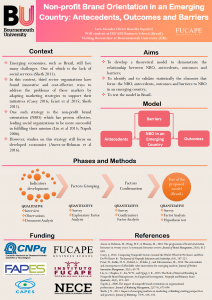






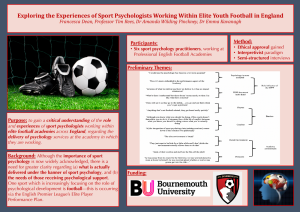
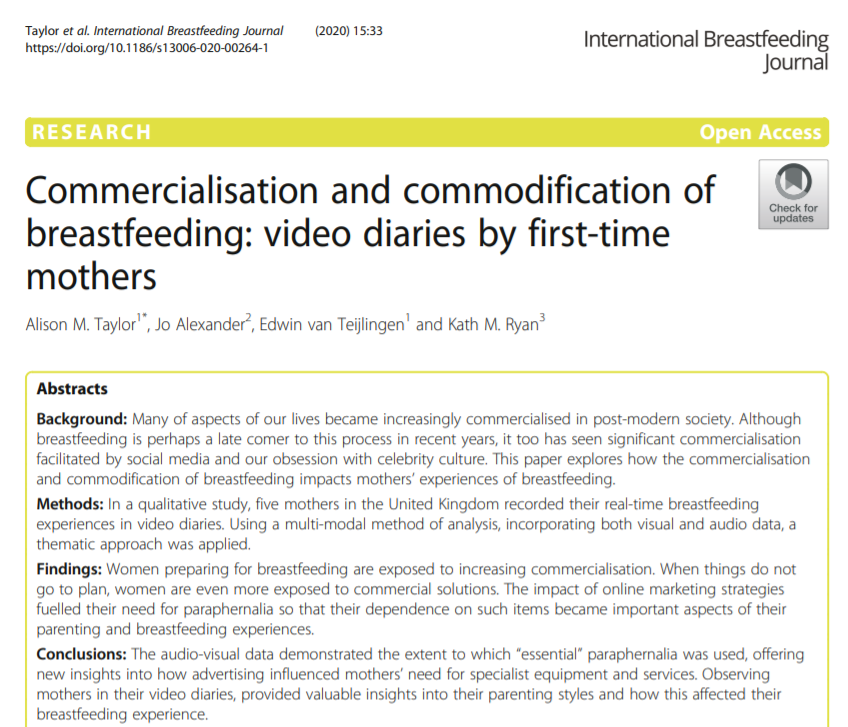



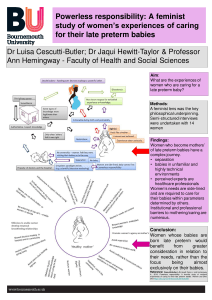

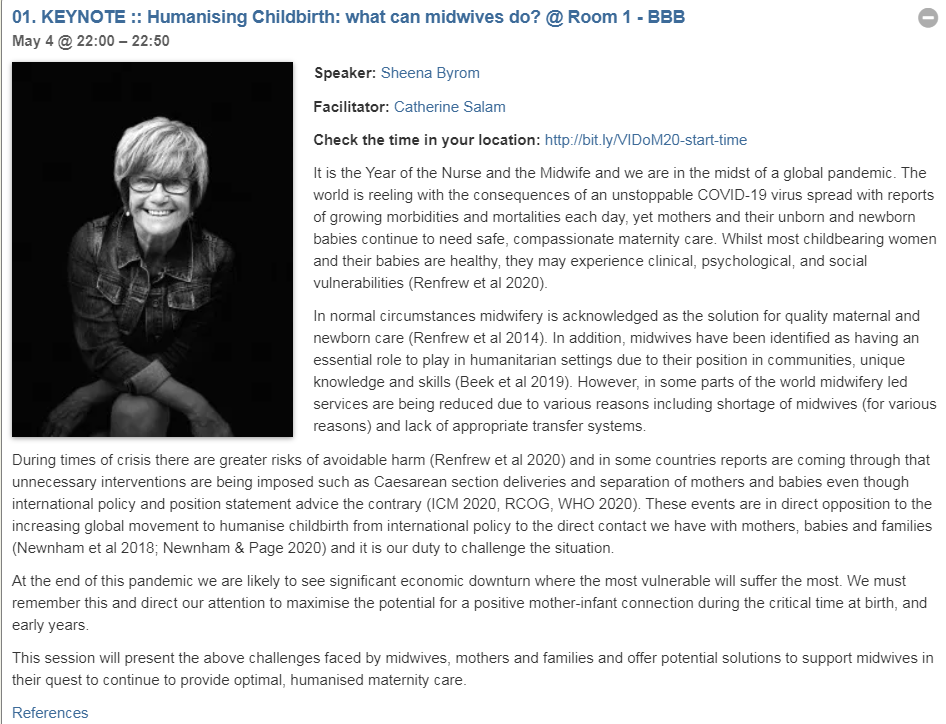


 In recognition of the important contribution that early career academics play in driving research for the future, we are delighted to continue the BU Academic Targeted Research scheme to attract and recruit talented individuals in targeted research areas. Following the successful recruitment of five new posts, we will employ one other new Senior Lecturer with significant postdoctoral expertise (or of comparable experience) with outstanding potential in alignment with the targeted research areas:
In recognition of the important contribution that early career academics play in driving research for the future, we are delighted to continue the BU Academic Targeted Research scheme to attract and recruit talented individuals in targeted research areas. Following the successful recruitment of five new posts, we will employ one other new Senior Lecturer with significant postdoctoral expertise (or of comparable experience) with outstanding potential in alignment with the targeted research areas: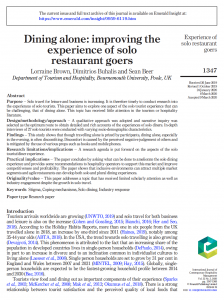













 REF Code of Practice consultation is open!
REF Code of Practice consultation is open! BU Leads AI-Driven Work Package in EU Horizon SUSHEAS Project
BU Leads AI-Driven Work Package in EU Horizon SUSHEAS Project Evidence Synthesis Centre open at Kathmandu University
Evidence Synthesis Centre open at Kathmandu University Expand Your Impact: Collaboration and Networking Workshops for Researchers
Expand Your Impact: Collaboration and Networking Workshops for Researchers ECR Funding Open Call: Research Culture & Community Grant – Apply now
ECR Funding Open Call: Research Culture & Community Grant – Apply now ECR Funding Open Call: Research Culture & Community Grant – Application Deadline Friday 12 December
ECR Funding Open Call: Research Culture & Community Grant – Application Deadline Friday 12 December MSCA Postdoctoral Fellowships 2025 Call
MSCA Postdoctoral Fellowships 2025 Call ERC Advanced Grant 2025 Webinar
ERC Advanced Grant 2025 Webinar Update on UKRO services
Update on UKRO services European research project exploring use of ‘virtual twins’ to better manage metabolic associated fatty liver disease
European research project exploring use of ‘virtual twins’ to better manage metabolic associated fatty liver disease